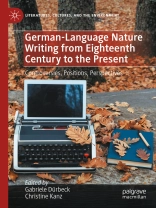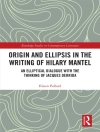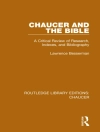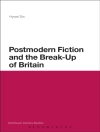This volume examines the topic of German-language nature writing in a broad historical context spanning more than two centuries. It brings together contributions on the debates of the category ‚Nature Writing’ by numerous renowned international scholars. It discusses literary texts of natural history, nature exploration, nature poetry perception and reflection by German-speaking authors since the 18th century, including texts by Ulrike Draesner and on Esther Kinsky’s writing. The book asks whether the here discussed texts can, should, or may also be labeled as ‚Nature Writing‘ and how this new perspective on German literary history might change traditional classifications such as “Naturlyrik” (nature poetry) in German literary history.
Inhaltsverzeichnis
1. Introduction.- 2. Is there a German-speaking Nature Writing? Broken Traditions and Transnational References.- 3. Barthold Heinrich Brockes and Nature Writing.- 4. ‚Sie scheinen zu fliehen ‚: Nature and Poetry in Johann Wolfgang Goethe’s Italienische Reise (1813/17).- 5. How to make nature speak? Novalis‘ Lehringe zu Sais.- 6. Nature Writing in Transcendental Perspective: Friedrich Hölderlin and Henry David Thoreau.- 7. Humboldtian Writing for the Anthropocene.- 8. Living Still: Stifter’s Poetics of Nature.- ANKE KRAMER: Fluid ‚Homeland‘. Water and Nature Writing in Theodor Fontane’s Wanderungen durch die Mark Brandenburg.- 9. From Brehm’s Animal Life to a Report for an Academy. Franz Kafka’s Animal History as an Early Commentary on Writing about Nature.- 10. Roses, Figs, Gardens in the Work of Gertrud Kolmar and Ilse Langner.- 11. Wilhelm Lehmann: Nature Writing as a Theory of Behavior.- 12. On the Natural History of Nature Writing. Linné’s Disciples.-13. The Representation of Alaska in Peter Handke’s Langsame Heimkehr (1979) from the Point of View of Nature Writing.- 14. Nature Writing: On the Usefulness of a New Genre Concept for the Understanding of Sebald’s Prose on the Example of the Essay Die Alpen im Meer.- 15. Esther Kinsky’s Terrain Texts: A ‚Non-Modern‘ Genre of the Nany Possible Ecologies.- 16. German Nature Writing: Notes on a Representational Gap, on the German Tradition of the Popular Nature Book, and on the Phenomenon ‚Peter Wohlleben‘.- 17. From Both Sides Now: Nature Writing at Literary Festivals.
Über den Autor
Gabriele Dürbeck is Professor of Literature and Culture Studies at the University of Vechta, Germany.
Christine Kanz is Professor of Modern German Literature within the “Cluster Mitte” co-operation in Linz and Salzburg, Austria and is Visiting Professor at Ghent University, Belgium.












